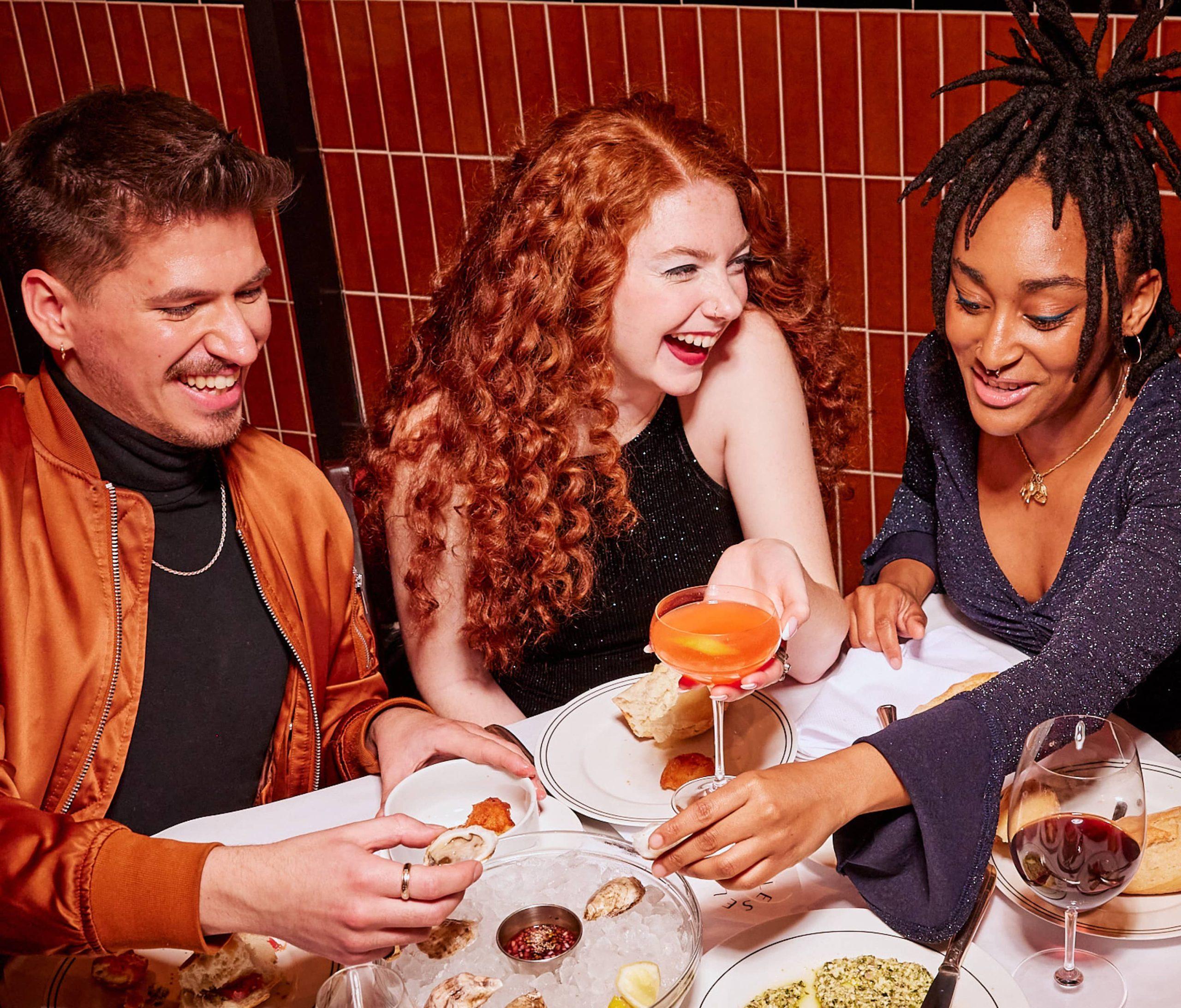Some may know him as the bloke behind the pass at a couple of JKS restaurants. Others may recognise him from his (brief) appearance on MasterChef: The Professionals. What many might not know is how Suresh Pillai got there, or the various parts of the world his cheffing took him to along the way.
Suresh Pillai started off as a waiter in Kollam, before realising – thanks to his mum – he had some talents in the kitchen. These talents would take him from his home in Kerala to Bangalore, then out of his come country, eventually consulting with and cooking at restaurants all around the world, before returning to Kerala to become corporate head and exec chef at The Raviz Ashtamudi resort. The chef talks to me about his travels, and how they’ve changed his perceptions of cooking as well as his motivations for it.

‘One day I got a call from London. I got the opportunity to work at Veeraswamy. They knew me – someone came to eat my food at the restaurant, and they got me in for an interview. I was stunned. It’s still one of the biggest surprises of my life. And it was a huge salary compared to what I had before.’
On his experience at JKS Restaurants
‘I became a British citizen, then I got the chance to work at Gymkhana, as a senior sous chef. That was interesting because no Indian restaurant did lunch. But Gymkhana did. And there would be no tables available. There’d be 200 covers at an 80 cover restaurant. Hoppers was £35k a week in sales. Because I’m from Kerala, and Sri Lanka is close, Hoppers was very close to my food. I was much more comfortable at Hoppers.’
On unfamiliar territory
‘When I started working in the UK, there were ingredients which aren’t so explored in India. Because when we have a curry, we have, say, a beef curry. We don’t have a shortrib or brisket or shank. It’s just beef. When I came to the UK I realised there were all these different cuts with their different flavours. And over here [in India] it’s never ‘a season’. All the time it’s the same. In the UK I learned to cook with the winter or the summer. I think it makes a better chef to take the better ingredients in the different seasons.’
On the opportunities brought about by MasterChef
‘I was so disappointed I didn’t get the chance to study, or to go to college. But because of MasterChef I was invited to the Bahamas, to teach culinary students. They had a lot of ingredients like mango and wonderful seafood but they don’t use that. They don’t know how to use spice. So I taught them. That was one of the best achievements of my life – to teach students and help them with my experience.’
On his homecoming
‘I left Hoppers because I got an opportunity with Raviz, this big hotel group in my homeland. It’s always a huge opportunity. The owner of this resort is a rich man from Kerala. He personally invited me to join as a corporate chef, and I thought it was a great opportunity. Now my speciality is seafood. Where we are is right next to the Arabian Sea, which has amazing local seafood, so everyday we get very fresh fish. Whatever comes I cook on that same day. I ask the fishermen, “bring me whatever you’ve got”. Sardine, mud crab, shrimps, scampi, langoustines, clams, oysters. The only thing I can’t get are scallops.’
On the change of pace
‘I still miss London, but this is my homeland. I have lots of things very close to me here. I can see my dad and mum everyday. My brothers too. Of course in London I didn’t have time to go home. It’s that kind of work culture. But I never complained of it being busy in London. I actually enjoyed it. In all of fourteen years in London I didn’t get a single problem – no racist attack or anything.’
On what’s next
‘A big, huge disaster happened all over Kerala [in August this year, flooding killed 483 people, displaced over a million]. So I thought, how can I help as a chef? I posted on Facebook when the problems started – it was one of the worst times we’ve had in Kerala – and as I had this experience with Cook For Syria, I asked, can we do a Cook For Kerala event? There are a lot of Kerala chefs around the world, so I asked them if we can do something special so we can send money back. It was a huge success – in London, chefs at Gymkhana, Trishna, Kricket [took part]. All the Kerala media covered it. And now I’m doing a Cook For Kerala cookbook, with chefs around the world and their recipes. All the profits go to the affected – they don’t have anything, and the government is supporting them very very slowly. Around 50 to 70 chefs want to send me recipes, and there are more coming.’



